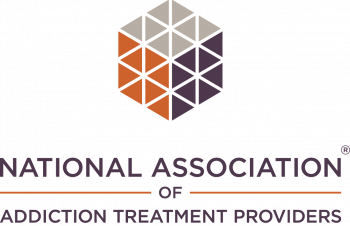Some drug addictions are easier to spot than others. If someone is using illicit drugs, it’s easy to assume they have a drug addiction. When the substance is legal, it becomes more difficult. Knowing the signs of addiction can help you determine if a loved one has an addiction that requires drug rehab.
What is Prescription Drug Addiction?
Prescription addiction involves using prescription drugs in a manner other than prescribed or for a reason other than prescribed. This can occur with legitimate prescriptions or prescription drugs that are obtained illegally. Addiction occurs when an individual develops a dependence on drugs and cannot stop using them despite negative consequences.
Prescription drugs with a risk of addiction include:
- Opioids (hydrocodone, oxycodone, morphine)
- Benzodiazepines (Xanax, valium, lorazepam)
- Stimulants (Adderall, phentermine, Ritalin)
It’s important to know that physical dependence doesn’t always mean the person has a drug addiction. Physical dependence develops when the body becomes dependent on the substance. When they stop or lower their dose, withdrawal symptoms occur. Most addictive prescription drugs, including opiates and benzodiazepines, cause physical dependence when taken over a period of time. Since physical dependence can occur without misusing the medication, it does not indicate drug addiction on its own.
Signs of Prescription Drug Addiction
Physical dependence can be a sign of drug addiction. However, psychological dependence is always part of addiction. Psychological dependence means that the person feels they need the drug to feel normal or cope with day-to-day life. We should also note that misuse doesn’t indicate addiction by itself, but often leads to addiction. This means using the drug in a way other than prescribed.
Signs of addiction include:
- Continuing to take the drug after pain has stopped
- Behavioral changes, including mood swings, sedation, and hyperactivity
- Taking the drug more often or in higher amounts than prescribed
- Getting the drug in illegal ways, including friends, family members, or buying it illegally
- Taking the drug to cope with emotional or mental issues
- Lying about their use
The Three Types of Prescription Addiction Behavior
The truth is, there are many signs of drug addiction, but addiction and its severity need to be determined by a professional rehab facility. There are generally three types of behavior exhibited by those addicted to prescription drugs.
The first type of behavior is from a person who doesn’t use the drug or misuse it very often. They may take more than prescribed on the weekend to have a good time and even take little to no medication throughout the week. Since the behavior doesn’t occur all the time, it can be easy to dismiss it.
The other type of behavior is what is considered stereotypical addiction. This person wants the drug all the time. They frequently take more than prescribed and do whatever they can to get more of it.
Then, there are those who seem to use the drug properly. They may take it as prescribed by their doctor. However, you notice that they think about the drug often. They anxiously await the next dose. They may say that the drug is not adequately treating their symptoms in order to get a higher dose of the drug. In the case of opioids, they may complain of pain after they should be healed in order to keep taking the drug.
Reach Out for Help Today
If you suspect a loved one has a prescription drug addiction, there are things you can do. The simplest is to contact a rehab facility yourself. They can speak with you about your concerns and the next steps you should take. They can guide you in your efforts to get your loved one into addiction treatment.
Reach out to TruHealing Gaithersburg today. We understand how painful it is to watch a loved one struggle with addiction. We offer a prescription drug treatment program that is customized to the person’s individual needs. The disease of addiction only gets worse without treatment. Contact us today at (833) 625-0398.









